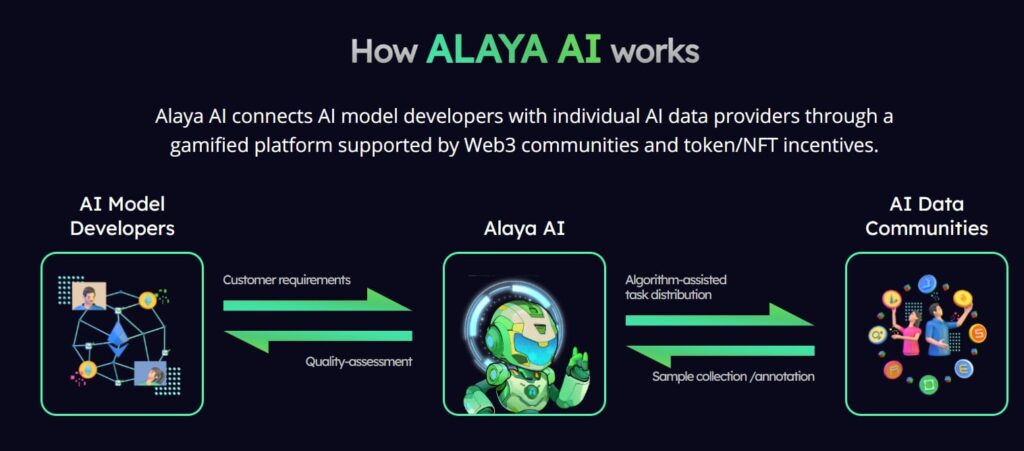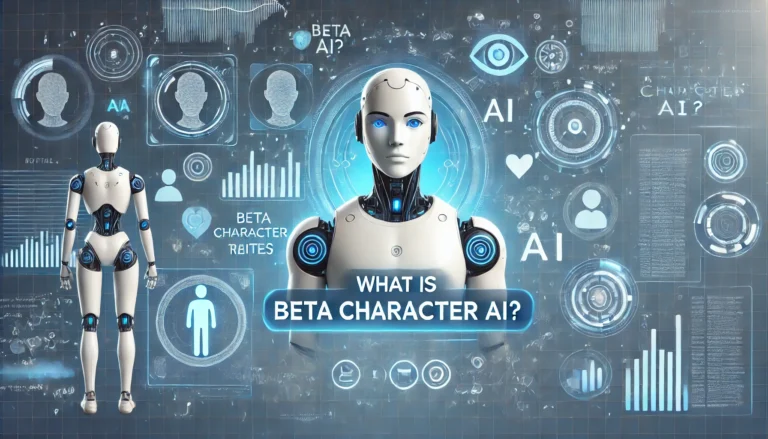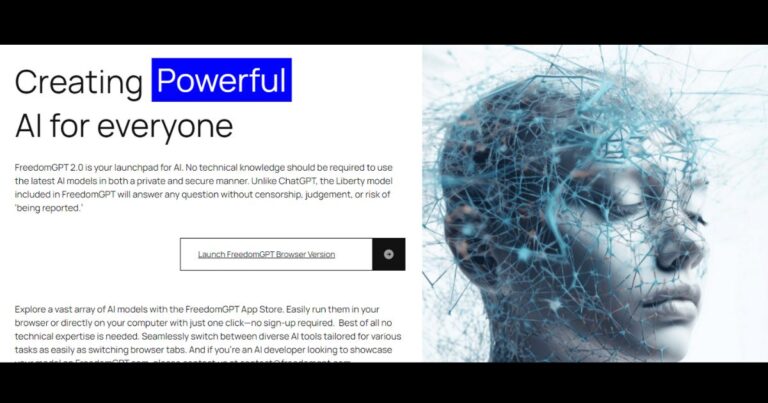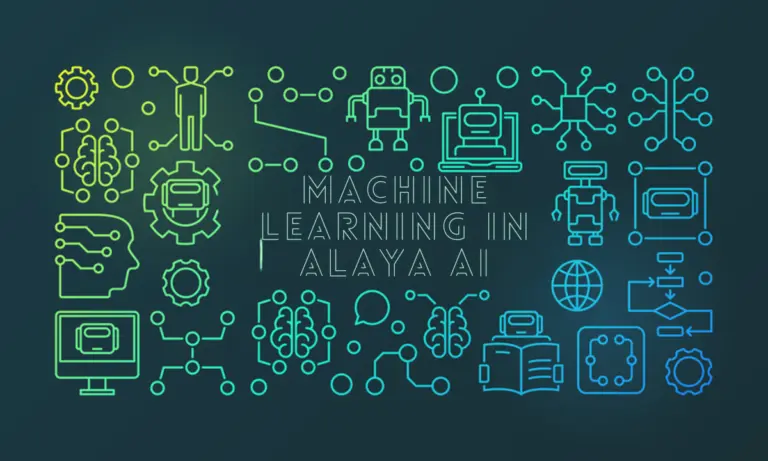How Alaya AI Transforms Decision-Making | Unlocking Data Insights
As businesses increasingly rely on data-driven decisions, many struggle to extract meaningful insights from vast information. This challenge leads to inefficiencies, missed opportunities, and a competitive disadvantage.
However, Alaya AI offers a transformative solution by leveraging advanced algorithms to simplify data analysis and enhance decision-making processes.
What is Alaya AI?

Alaya AI is an advanced artificial intelligence platform designed to streamline data processing and enhance decision-making across various industries.
By utilizing sophisticated algorithms and machine learning techniques, Alaya AI analyzes vast amounts of data in real-time, providing businesses with actionable insights that drive efficiency and productivity.
This innovative solution caters to a diverse range of sectors, including healthcare, finance, retail, and logistics, making it a versatile tool for organizations looking to leverage the power of AI.
With its user-friendly interface and customizable features, Alaya AI enables users of all skill levels to harness the benefits of artificial intelligence, facilitating informed decision-making and promoting growth.
Core Features of Alaya AI

Alaya AI stands out with its powerful features designed for optimal performance and ease of use. It utilizes advanced algorithms for accurate predictions, has an intuitive user interface for effortless navigation, and offers seamless integration with existing business systems.
Built for scalability and flexibility, Alaya AI adapts to diverse organizational needs, making it a versatile AI solution across industries. These features together empower businesses to make data-driven decisions and enhance efficiency in a user-friendly, adaptable way.
Advanced Algorithms
Alaya AI is built upon advanced algorithms that greatly enhance its predictive capabilities. Unlike traditional AI models that rely on basic data processing, Alaya AI’s sophisticated algorithms are designed to analyze complex datasets.
This capability allows it to identify patterns and correlations that may not be immediately apparent, resulting in more accurate predictions and actionable insights.
The ability to process and interpret large volumes of data quickly positions Alaya AI as a frontrunner in the AI space, enabling businesses to stay ahead of trends and make informed strategic decisions.
User Interface and Experience
The user interface of Alaya AI is meticulously crafted for ease of use and accessibility. It features an intuitive layout that allows users, regardless of their technical skill level, to navigate the platform effortlessly.
User feedback has consistently highlighted the platform’s functionality, noting that it significantly enhances the overall user experience.
This focus on user-friendliness not only encourages broader adoption among employees but also facilitates quicker onboarding and integration into daily workflows, ensuring that businesses can fully leverage the tool’s capabilities from the outset.
Integration Capabilities
One of Alaya AI’s key strengths lies in its seamless integration capabilities with existing business systems. The platform offers robust API support, which allows organizations to connect Alaya AI with various third-party applications with minimal hassle.
This versatility is crucial for businesses looking to enhance their current operations without overhauling their entire IT infrastructure.
By facilitating easy integration, Alaya AI ensures that companies can maximize their investment in AI technology and create a cohesive ecosystem that enhances productivity and collaboration across different departments.
Scalability and Flexibility
Alaya AI is designed to be scalable and flexible, adapting to the needs of businesses of all sizes. Whether a small startup or a large multinational corporation, Alaya AI can adjust its capabilities to fit the organization’s specific requirements.
This scalability is particularly evident in various industries, including retail and healthcare, where Alaya AI has been successfully implemented to tackle unique challenges.
By offering tailored solutions that grow alongside a business, Alaya AI helps organizations navigate the complexities of their environments while ensuring continued success and efficiency.
Applications of Alaya AI
Alaya AI offers impactful applications across various industries. In business, it streamlines operations, enhances diagnostics in healthcare, and provides innovative solutions in finance and education.
Its adaptability makes it a valuable tool for diverse sectors, allowing organizations to leverage its capabilities for improved performance and efficiency.
1. In Business
Alaya AI is being widely adopted in various business sectors to streamline operations and enhance productivity. Companies that utilize AI-driven analytics have reported substantial increases in efficiency, often resulting in reduced operational costs.
For example, businesses can automate repetitive tasks, allowing employees to focus on higher-value activities. This transformation not only improves employee satisfaction but also drives better overall performance within the organization, as resources are allocated more effectively.
2. In Healthcare
In the healthcare sector, Alaya AI plays a crucial role in improving medical diagnostics and patient management. By analyzing patient data and medical histories, Alaya AI aids healthcare professionals in making informed decisions that lead to improved patient outcomes.
For instance, it can identify early warning signs of diseases, suggest personalized treatment plans, and optimize resource allocation within hospitals. This intelligent use of data ultimately enhances the quality of care provided to patients, making healthcare services more effective and efficient.
3. In Finance
Financial institutions are increasingly turning to Alaya AI for its capabilities in fraud detection and risk assessment. By meticulously analyzing transaction patterns and customer behavior, Alaya AI can quickly identify anomalies that may indicate fraudulent activity.
This rapid response capability is crucial for mitigating risks and protecting both the institution and its clients. Moreover, by enhancing the accuracy of risk assessments, Alaya AI enables financial organizations to make better-informed lending and investment decisions, thus contributing to greater financial stability.
4. In Education
Alaya AI is transforming educational environments by providing personalized learning experiences tailored to individual student needs. The platform can adapt educational content based on a student’s learning pace and style, helping to improve engagement and academic outcomes.
For example, AI-driven tools can assess students’ strengths and weaknesses, providing targeted resources that address specific challenges. This individualized approach fosters a more effective learning environment, promoting greater success for students across various educational settings.
Other Sectors
Beyond its primary applications, Alaya AI demonstrates versatility in several other sectors. In logistics, it can optimize delivery routes, leading to reduced fuel costs and improved delivery times.
In marketing, Alaya AI enables businesses to create targeted campaigns based on consumer behavior analytics, thereby enhancing engagement and conversion rates.
This adaptability across various industries showcases Alaya AI’s potential to drive innovation and efficiency in diverse operational contexts.
Top Benefits of Alaya AI
- Enhanced Decision-Making: Alaya AI provides data-driven insights that enable businesses to make informed decisions quickly. By analyzing vast datasets in real-time, it helps organizations can identify trends and opportunities, leading to better strategic planning and execution.
- Increased Efficiency: With its advanced algorithms and automation capabilities, Alaya AI significantly reduces manual processes, saving time and resources. This efficiency allows teams to focus on higher-value tasks, improving overall productivity.
- Real-Time Data Analysis: Alaya AI excels in providing immediate analytics, ensuring that businesses can respond swiftly to changing market conditions. This capability allows organizations to stay competitive and capitalize on emerging trends as they happen.
- Scalability: Alaya AI can easily adapt to the growing needs of a business, handling increased data volumes without compromising performance. This scalability ensures that organizations can continue to leverage AI as they expand.
- Customization: The platform can be tailored to fit specific industry needs and business objectives, allowing for a more personalized approach to AI implementation. This customization enhances user experience and ensures that the solution aligns with unique workflows.
- Cost-Effective Operations: By automating routine tasks and improving operational efficiency, Alaya AI helps businesses reduce costs associated with manual labor and errors. This financial advantage can lead to significant savings over time.
- Improved Customer Experience: Alaya AI can enhance customer interactions by providing personalized recommendations and support based on data insights. This tailored approach helps improve customer satisfaction and loyalty.
- Robust Security Measures: Alaya AI often includes advanced security features to protect sensitive data, ensuring compliance with industry regulations. This focus on security helps businesses mitigate risks associated with data breaches.
- Cross-Industry Applicability: Alaya AI can be utilized across various sectors, such as finance, healthcare, and retail, making it a versatile tool for diverse business environments. This adaptability enables organizations in different fields to harness the power of AI.
- Continuous Learning and Improvement: Alaya AI systems are designed to learn from new data inputs, continually refining their algorithms for better accuracy and performance. This self-improvement capability ensures that the AI remains relevant and effective over time.
Pros and Cons of Alaya AI
| Pros of Alaya AI | Cons of Alaya AI |
|---|---|
| Advanced Data Processing | Complexity of Implementation |
| Alaya AI can efficiently process large datasets, enabling deeper insights and faster decision-making. | Implementing Alaya AI may require significant time and resources, especially for integration into existing systems. |
| User-Friendly Interface | Learning Curve for Advanced Features |
| The intuitive design allows users, regardless of their technical background, to navigate and utilize its features easily. | Some advanced features may require training or a learning period to fully leverage their capabilities. |
| Customization Options | Dependence on Data Quality |
| Businesses can tailor Alaya AI to meet specific needs, ensuring its functionalities align with their goals. | The effectiveness of Alaya AI is heavily reliant on the quality and cleanliness of the input data; poor data can lead to inaccurate results. |
| Real-Time Analytics | Ongoing Costs |
| Provides real-time insights, enabling businesses to make timely decisions based on the most current data. | There may be ongoing subscription or maintenance costs, which can accumulate over time, impacting budget considerations. |
| Wide Applicability | Potential Over-Reliance on AI |
| Applicable across various sectors such as healthcare, finance, and education, making it a versatile tool for organizations. | Businesses might become overly reliant on Alaya AI, potentially neglecting human oversight in decision-making processes. |
Challenges and Limitations
Alaya AI brings numerous benefits, yet it also faces certain challenges that can impact its performance. These include technical issues, ethical concerns, and data privacy requirements.
Addressing these limitations is essential for businesses to fully unlock Alaya AI’s potential while ensuring secure, fair, and effective implementation across different applications.
Technical Limitations
Despite its numerous advantages, Alaya AI faces certain technical challenges that can hinder its effectiveness. One significant limitation is the accessibility of high-quality data, which is essential for training AI models.
In many cases, businesses may struggle to gather sufficient amounts of reliable data, leading to suboptimal AI performance. Addressing these technical limitations is crucial for organizations to fully realize the potential of Alaya AI and ensure successful implementations.
Ethical Considerations
The deployment of AI technologies raises important ethical considerations that businesses must address proactively.
Concerns about bias in AI algorithms and the fairness of automated decisions can have significant implications for companies and their customers.
Organizations need to implement practices that ensure fairness and transparency in their AI systems, as addressing these ethical issues is critical to maintaining trust and credibility in the marketplace.
Data Privacy and Security
Data privacy and security are paramount when utilizing AI systems like Alaya AI. Businesses must prioritize the protection of sensitive user information and implement robust security measures to guard against data breaches.
Failing to adequately protect user data can lead to significant reputational damage and legal repercussions.
Therefore, Alaya AI providers must focus on establishing stringent protocols to safeguard data integrity and privacy, ensuring compliance with regulations.
Alaya AI vs. Traditional AI Models
| Feature | Alaya AI | Traditional AI Models |
|---|---|---|
| Algorithm Complexity | Utilizes advanced machine learning algorithms for deep insights and adaptability. | Typically relies on simpler algorithms with limited adaptability. |
| Data Processing | Handles large datasets with high efficiency and speed. | May struggle with processing vast amounts of data effectively. |
| Integration | Easily integrates with various platforms and tools, ensuring seamless functionality. | Integration can be complex, often requiring additional customizations. |
| User Experience | Designed for intuitive user interaction, prioritizing usability. | It may have a steeper learning curve for users unfamiliar with AI. |
| Customization | Highly customizable to fit specific business needs and workflows. | Often limited in customization options, requiring significant changes for adaptation. |
| Real-time Analytics | Provides real-time data analysis and insights for quick decision-making. | Typically provides periodic analysis, leading to potential delays in insights. |
| Scalability | Easily scalable to accommodate growing data and user needs. | Scalability can be challenging, often requiring infrastructure upgrades. |
| Application Range | Versatile applications across various industries, including healthcare, finance, and education. | Generally focused on specific use cases within narrower industry applications. |
| Cost Efficiency | Offers a cost-effective solution by reducing manual intervention and increasing efficiency. | May incur higher costs due to manual processes and limited automation. |
| Support and Resources | Provides robust documentation and community support for users. | Support may vary significantly, depending on the model and vendor. |
Practical Examples of Alaya AI
- Predictive Analytics in Healthcare: Alaya AI is used in healthcare to predict patient outcomes and optimize treatment plans. For instance, hospitals using AI-driven analytics have reported a reduction in readmission rates by up to 30%, allowing for more effective patient management.
- Personalized Marketing Campaigns: Retail companies leverage Alaya AI to analyze consumer behavior and preferences, enabling them to create targeted marketing campaigns. Brands that employ AI for personalization have seen a 10-20% increase in sales, according to industry studies.
- Supply Chain Optimization: Businesses in logistics utilize Alaya AI to optimize their supply chain operations. By predicting demand and identifying potential disruptions, companies can reduce inventory costs by as much as 15% and improve delivery times.
- Fraud Detection in Finance: Financial institutions implement Alaya AI for real-time fraud detection. AI systems can analyze transaction patterns, leading to a 50% reduction in fraudulent transactions detected, thereby saving millions in losses.
- Customer Support Automation: Many companies adopt Alaya AI to enhance their customer service through chatbots and virtual assistants. Businesses using AI-driven support tools report a 30% decrease in response times and a significant improvement in customer satisfaction scores.
- Employee Productivity Analysis: Organizations use Alaya AI to analyze employee performance data, helping to identify areas for improvement and increase overall productivity. Companies that apply AI-driven insights see productivity boosts of up to 25%.
- Energy Management: In the energy sector, Alaya AI aids in monitoring consumption patterns and optimizing resource allocation. Implementing AI can lead to energy savings of 10-15% by identifying inefficiencies in real-time.
- Real Estate Valuation: Real estate firms utilize Alaya AI to assess property values based on market trends and comparable sales data. AI algorithms can improve appraisal accuracy by as much as 20%, benefiting both buyers and sellers.
Getting Started with Alaya AI
Getting started with Alaya AI is an accessible process that encourages users to quickly engage with the platform.
Installation and Setup Process
Getting started with Alaya AI is straightforward, thanks to its comprehensive installation and setup process. Users can access the platform through a simple registration process, followed by guided tutorials that facilitate onboarding.
These resources ensure that users can quickly familiarize themselves with the features and capabilities of Alaya AI, allowing them to start harnessing its potential without delays.
Training and Support
To maximize the benefits of Alaya AI, ongoing training and support are essential. The platform offers various training resources, including webinars, documentation, and customer support services.
This commitment to user education ensures that organizations can effectively utilize Alaya AI to achieve their goals and continuously improve their operations.
Best Practices for Implementation
When implementing Alaya AI, organizations should follow best practices to ensure a successful integration. These practices include clearly defining objectives, establishing key performance indicators (KPIs), and continuously monitoring progress.
By adopting a strategic approach to implementation, businesses can optimize the use of Alaya AI and realize its full potential in driving growth and innovation.
Common Myths About Alaya AI Debunked
- Myth: Alaya AI is Only for Large Enterprises
Debunked: Many believe that advanced AI solutions like Alaya AI are only suitable for large organizations with substantial resources. In reality, Alaya AI is designed to be scalable and customizable, making it accessible and beneficial for businesses of all sizes, including startups and small to medium enterprises. - Myth: Alaya AI Requires Extensive Technical Expertise to Use
Debunked: While some AI systems can be complex, Alaya AI features a user-friendly interface that allows users without technical backgrounds to navigate and operate it effectively. Comprehensive training and support further empower users, ensuring they can harness its capabilities regardless of their expertise level. - Myth: Implementing Alaya AI is Time-Consuming and Complicated
Debunked: Many assume that integrating an AI solution into existing systems will be a lengthy and cumbersome process. Alaya AI is designed for easy integration with existing software, minimizing disruptions and allowing organizations to quickly benefit from its features. - Myth: Alaya AI Will Replace Human Jobs
Debunked: A common concern is that AI will render human roles obsolete. However, Alaya AI aims to augment human capabilities rather than replace them. By automating routine tasks and providing data insights, it frees up employees to focus on more strategic, creative, and value-added activities. - Myth: Alaya AI is Only Useful for Data Scientists
Debunked: While data scientists can leverage Alaya AI’s capabilities, its functionalities are not limited to this audience. Business professionals, marketers, and decision-makers can also benefit from the insights generated, making it a versatile tool across various functions within an organization. - Myth: Alaya AI is Too Expensive for Small Businesses
Debunked: There is a misconception that advanced AI solutions come with prohibitive costs. Alaya AI offers flexible pricing models and can lead to long-term savings through increased efficiency and productivity, making it a cost-effective solution for businesses of any size. - Myth: Alaya AI Only Works with Structured Data
Debunked: While structured data is often easier for AI to analyze, Alaya AI is equipped to handle both structured and unstructured data, enabling organizations to gain insights from various sources, including text, images, and social media interactions. - Myth: Alaya AI Doesn’t Adapt Over Time
Debunked: Some believe that AI systems remain static and do not improve. In contrast, Alaya AI employs machine learning techniques that allow it to learn from new data inputs, continually enhancing its performance and accuracy over time.
FAQs
What types of businesses can benefit from using Alaya AI?
Alaya AI is designed to serve a wide range of industries, including healthcare, finance, retail, logistics, and education. Any business that relies on data analysis for decision-making can benefit from its advanced capabilities.
How does Alaya AI ensure data security and privacy?
Alaya AI prioritizes data security by implementing robust encryption protocols and compliance with industry standards such as GDPR and HIPAA. It also offers customizable access controls, ensuring that only authorized personnel can access sensitive information.
Can Alaya AI integrate with existing software and tools?
Yes, Alaya AI is designed to seamlessly integrate with a variety of existing software systems, including customer relationship management (CRM) platforms, enterprise resource planning (ERP) systems, and more.
What kind of support and training does Alaya AI offer?
Alaya AI provides comprehensive support and training to ensure users can fully utilize the platform. This includes access to detailed documentation, video tutorials, and live customer support.
Is Alaya AI suitable for companies with limited technical expertise?
One of the key advantages of Alaya AI is its user-friendly interface designed for individuals at all skill levels. Even companies with limited technical expertise can effectively utilize the platform, thanks to its intuitive design and available training resources.
Conclusion
Alaya AI is a groundbreaking technology set to change the world of AI. With its smart systems, secure data management, and focus on giving power back to users, it has the potential to make a big difference in healthcare, finance, education, and more. The future of Alaya AI looks promising, and we can expect it to continue growing and improving in the years to come.





